Cacao tea, also known as chocolate tea, is a delicious and healthy alternative to indulging in chocolate or coffee. Made from the roasted husks of the cacao bean, there are a wide range of benefits of cacao tea for both body and mind.
With a natural sweetness, seriously rich chocolate taste and aroma, and a gentle energy boost, you'll find yourself reaching for cacao tea as your new go-to chocolate drink. Brewed plain, it's sugar-free, virtually caffeine-free, gluten-free, dairy-free, and not at all bitter.
Rich in antioxidants, cacao tea can help reduce inflammation throughout the body, as well as being a pleasant beverage. In this article we cover the history and benefits of cocoa tea, including any potential issues with heavy metals or cross-contamination.
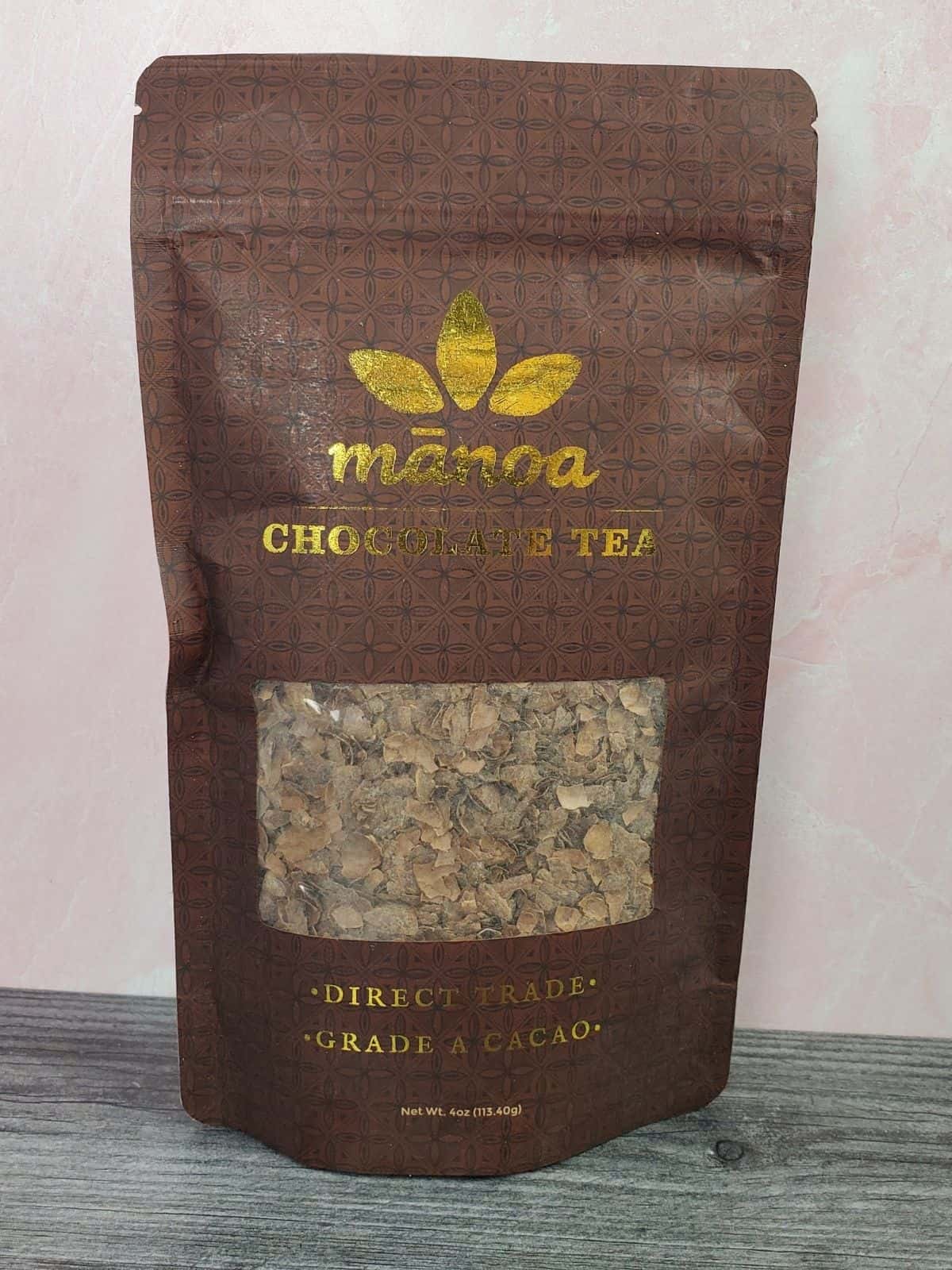
Jump to:
🍵 History of Cacao Tea
Cacao in Ancient Cultures
The history of cacao stretches back thousands of years to various ancient Mesoamerican civilizations. The earliest known human use of cacao traces back to the Amazon Basin, in an area which is now known as Ecuador.
The aboriginal tribes in the area consumed the sweet pulp surrounding cacao beans within the fruits, and eventually traded the beans with other groups. The cacao 'beans,' as they're called, were traded as far north as the modern-day United States, and the trees were eventually grown in modern-day Mexico.
Gradually there developed a ceremonial cacao beverage amongst the ancient Aztecs, which they often offered to their gods alongside ritual sacrifices. The Aztecs believed that consuming cacao was a way to connect with their gods, so it was highly revered throughout the society.
Evolution of Cacao Tea Consumption
As the consumption of cacao spread across cultures and time, the way it was consumed evolved as well. The delicious beverage that we now know as Mexican hot chocolate came into existence thanks to the addition of sugar in Europe, eventually morphing into the sweet spiced drink we enjoy today.
But before then, the cacao husks from the beans were used to brew a special tea called cacao husk tea (also known as cacao shell tea). This tea was a favorite among notable figures in history, allegedly including Martha Washington, who enjoyed drinking cacao shell tea with her guests.
Global Popularity
Cacao tea has experienced a resurgence in popularity and is now enjoyed by people worldwide. In addition to traditional cacao husk tea, a variety of innovative approaches to cacao tea, such as combining it with other botanicals to create unique flavor profiles, is more commonly found in various cafes and specialty shops.
This increase in popularity has allowed a greater global appreciation for the rich history, delightful taste, and health benefits of cacao tea.
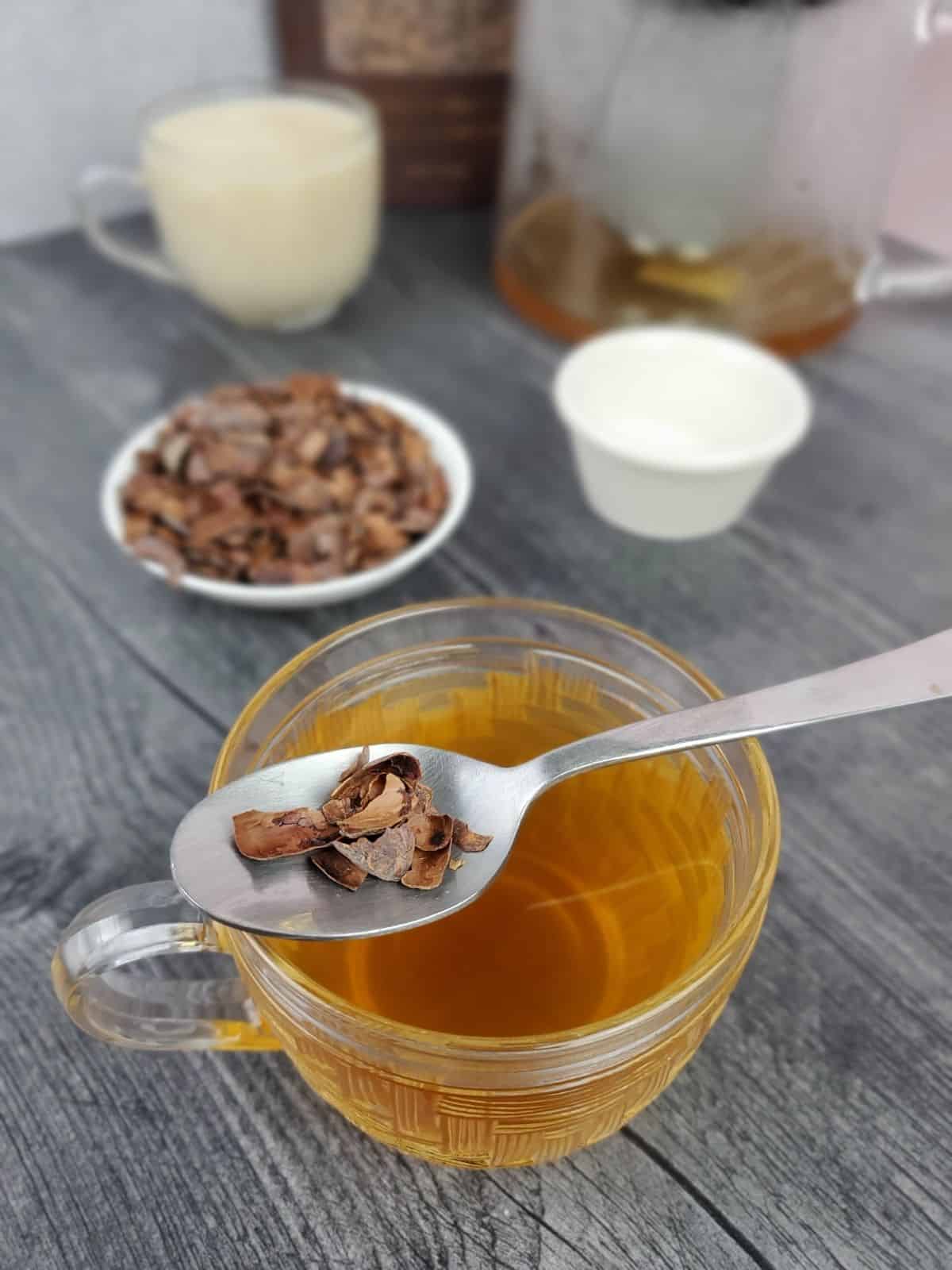
👩⚕️ Health Benefits of Cacao Tea
Hydrating Beverage
Because cacao tea is calorie-free, when you drink plain cacao tea you're essentially helping to rehydrate yourself. Since you can enjoy it throughout the day, this is a great way to get in a chocolate treat without any of the caloric energy.
Rich in Antioxidants
In parallel with the health benefits of chocolate, cacao tea is packed with antioxidants, which help protect your body from the harmful effects of free radicals. In fact, cacao shells have 40 times more antioxidants than blueberries. These antioxidant properties assist in boosting your immune system and maintaining overall health.
Cardiovascular Health
Cacao tea contains flavonoids like epicatechin, catechin, and procyanidins, which improve cardiovascular health by:
- Preventing clogged arteries
- Promoting healthy blood flow
- Reducing high blood pressure
Drinking cacao tea may help lower your risk of heart disease and promote a healthy circulatory system.
Mental and Physical Well-Being
Theobromine, a compound found in cacao, is a caffeine-free stimulant that provides a natural energy boost without the jitters or sleep disruption. It has muscle relaxant effects that can even function to improve sleep quality.
Brewed cacao husks are also a fine source of iron, calcium, and other minerals, though they're trace amounts. Furthermore, cacao's positive impact on cognitive function may lead to improved brain health and reduced risk of cognitive decline in older adults.
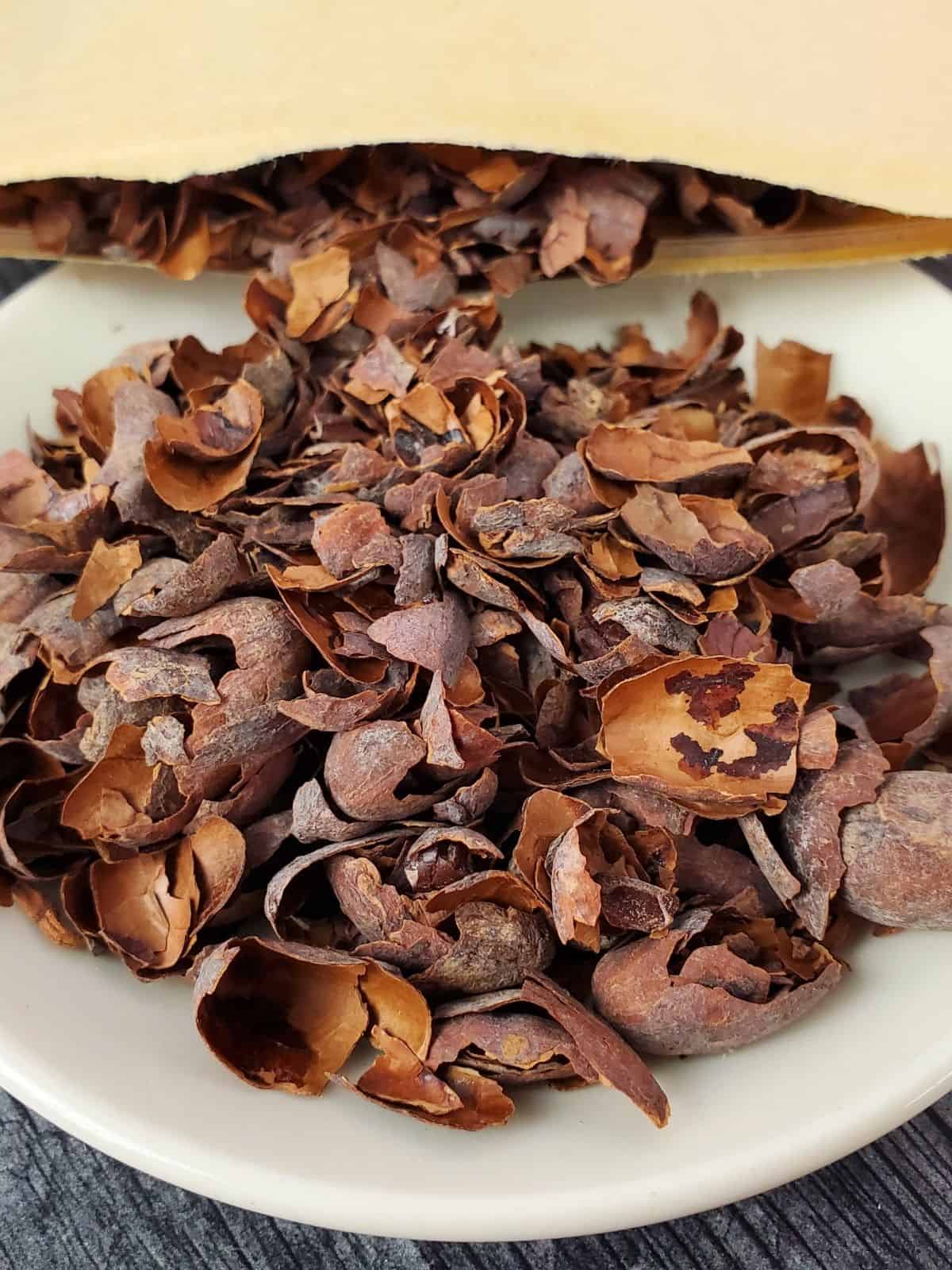
☕ Heavy Metals and Caffeine in Cacao Tea
You might be wondering about the presence of heavy metals in cacao tea, such as lead and cadmium. Heavy metals can be found in varying amounts in cacao products, including cacao tea. There is, however, almost no caffeine in cacao tea, and only a small amount of the stimulant theobromine.
According to one study, some brands and origins of cacao contain lower levels of heavy metals than others. Several factors contribute to the presence of heavy metals in cacao, including soil composition, farming practices, and industrial pollution.
Though all cacao products contain trace amounts of heavy metals, there are some with lower levels of these toxic substances. Here's what you can do to minimize the risk and enjoy cacao tea without the worry:
- Research brands: Look for information about heavy metal levels in your cacao tea of choice. Select tea providers conduct regular testing and maintain transparency about their results, though keep in mnd how expensive this may be for small businesses.
- Choose organic: Opt for organic cacao tea when possible, as organic farming practices tend to help reduce heavy metal exposure.
- Moderate your consumption: Moderate your intake of cacao tea and other chooclate products - if it worries you, consider it an indulgence rather than a daily ritual.
Other Hygienic Considerations
Over my decade working in the chocolate industry I've visited dozens of cacao farms, and I've found that the cacao beans are not the cleanest crop. It's just a fact of farm life that the cacao beans are exposed to a number of different dirty situations once they're removed from their pods.
This ranges from fermenting with natural bacteria and microbes in their tropical environment to drying along popular thoroughfares and being sprayed with disinfectants upon arrival at port. Cacao tea is made up of the husks or shells of the cacao beans, which are naturally exposed to more of the environment than the nibs from which chocolate is made.
This isn't the case with all cacao, and the roasting process eliminates any possibility of contamination from the husks, but these are some things to keep in mind when choosing from whom to buy your cacao husks.
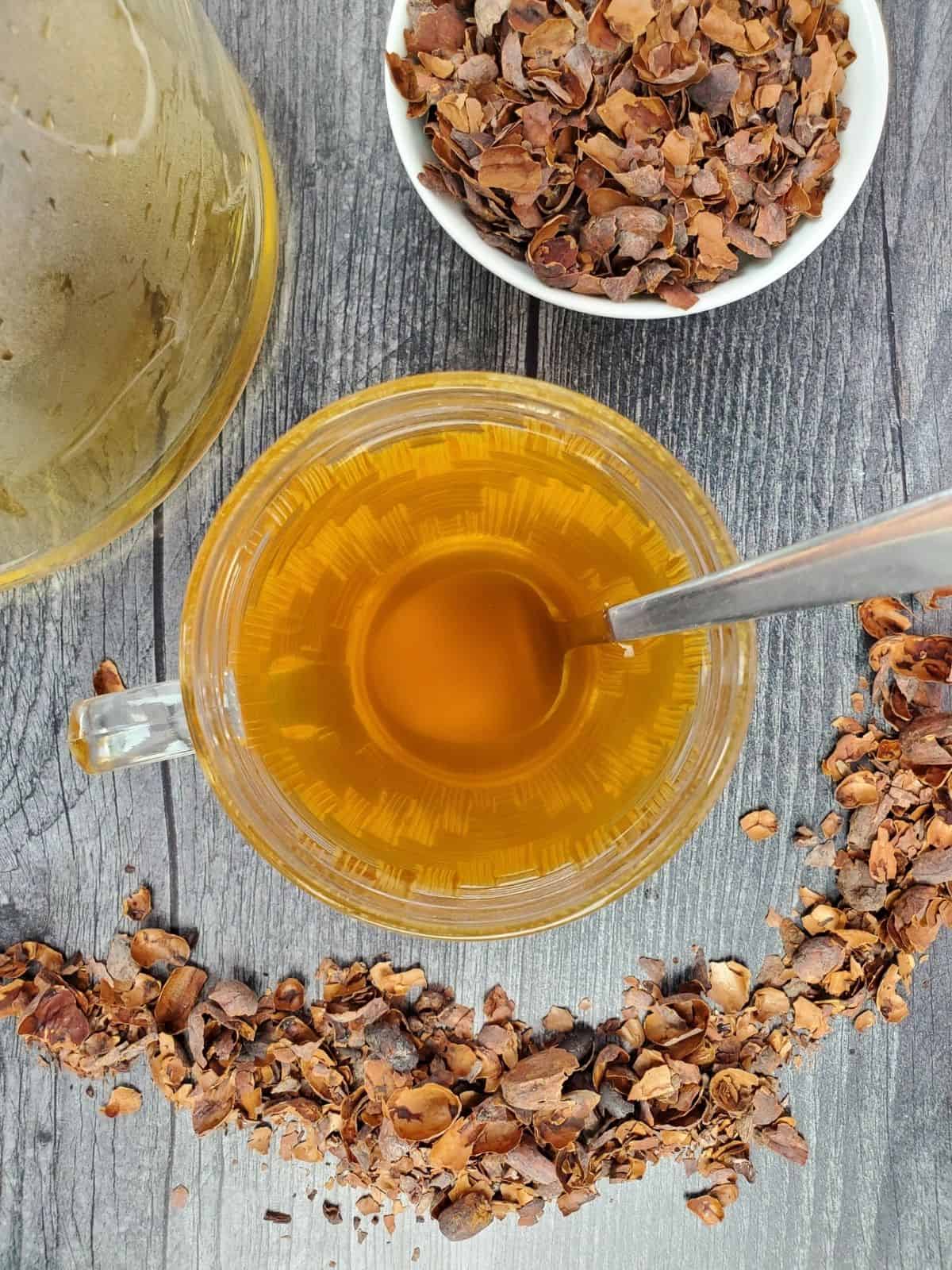
🔪 Other Creative Uses for Cacao Husks
Don't let the cacao husks, also known as shells, go to waste! These versatile chocolate making by-products have various applications beyond brewing tea:
- Garnishing: Sprinkle crushed cacao husks over yogurt, oatmeal, or your favorite dessert for added texture and a hint of chocolate aroma. They're rich in fiber and perfectly safe to eat, though try to crush them very finely, as they can be tough to chew.
- Infusions: Enhance the flavors of your beverages (e.g., coffee, hot chocolate) by infusing them with cacao husks.
- Potpourri: Create an alluring, chocolate-scented potpourri by mixing cacao husks with dried flowers and essential oils. It makes for a wonderful chocolate Christmas gift or hostess present.
🍫 Dietary Considerations
Cacao tea is a wonderful and natural beverage, not only delicious but also versatile. Made from cacao bean shells, it offers a rich and guilt-free chocolate flavor that can be enjoyed by almost everyone, most commonly in the form of chocolate milk tea.
One of the attractive points of cacao tea is it's naturally dairy-free chocolate flavor without any of the calories, making it suitable for those following a vegan or dairy-free diet. You can easily enjoy homemade cacao tea with your choice of milk substitutes, like almond milk or even coconut milk, to add a creamy touch without the dairy.
Cacao tea is mild and has a matching natural sweetness that can be enjoyed on its own. But if you prefer a sweeter beverage, you can opt for healthier sugar alternatives like coconut sugar or other sugar-free options such as allulose or monk fruit.
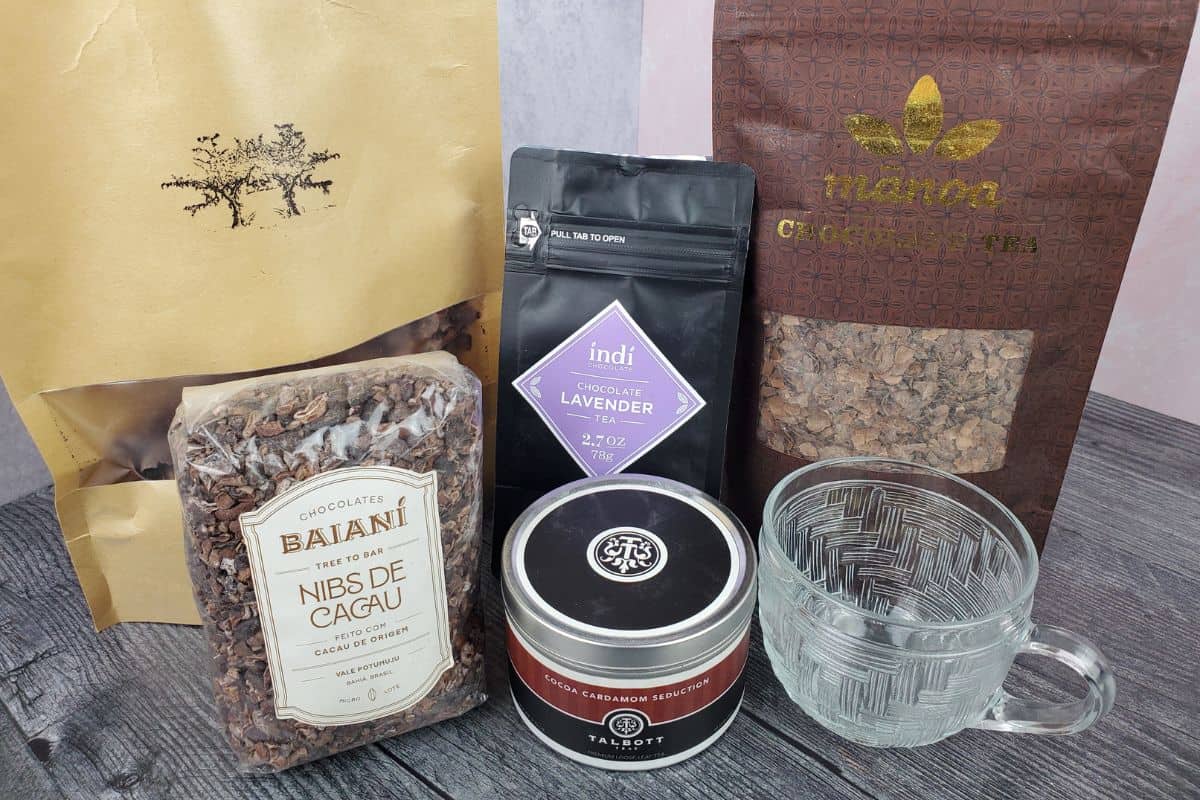
🙋🏼 Frequently Asked Questions
Cacao tea is good for providing a comforting, chocolatey beverage without the high calorie content of actual chocolate. It's also a source of antioxidants and can be a caffeine-free alternative to coffee or black tea, offering a potential mood boost and heart health benefits.
Several cacao tea brands offer high-quality products made from pristine cacao husks, generally sourced from their own chocolate making, and therefore already roasted and cleaned for optimal flavor. If you like the chocolate made from them, you'll probably like the cacao husks or nibs they use to make their tea. Some of my personal favorites include Manoa Chocolate and indi Chocolate.
To make cacao tea, you typically add cacao nibs or husks to hot boiling water and let them steep, allowing the flavors to infuse. The process is similar to brewing loose leaf tea; you can adjust the strength of the tea by varying the amount of cacao used and the steeping time. I prefer boiling the cacao for 5-10 minutes before straining.
Cacao is generally safe to drink daily in moderate amounts. It contains theobromine, which is a mild stimulant with a lower impact than caffeine, and it can offer health benefits due to its high antioxidant content. However, as with any food or drink, it's important to consume it as part of a balanced diet and be mindful of individual tolerance, especially if you're sensitive to theobromine or prone to acid reflux.

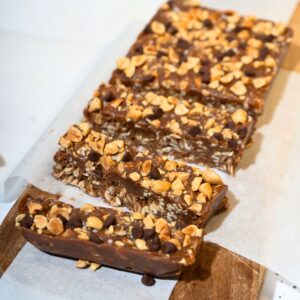
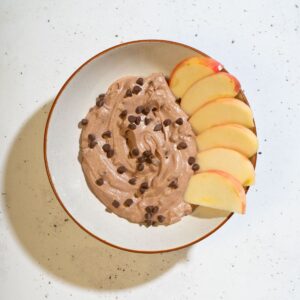
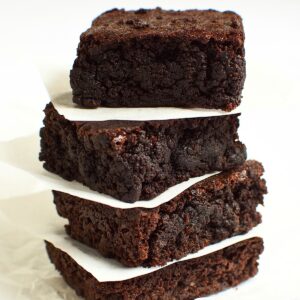

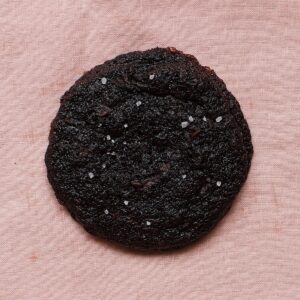


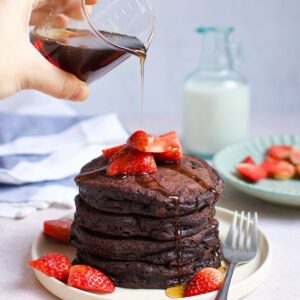


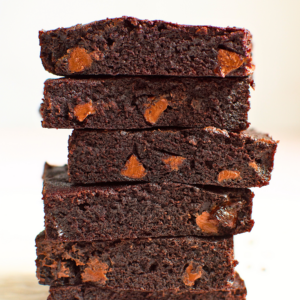

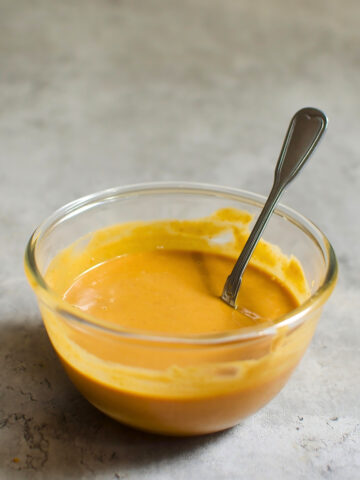

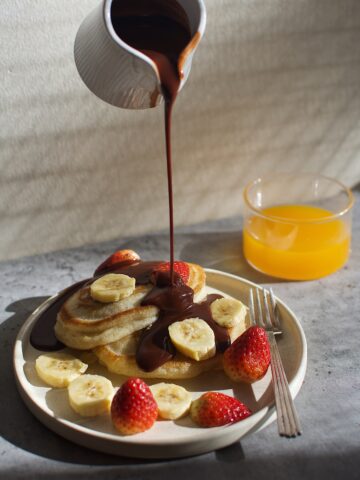
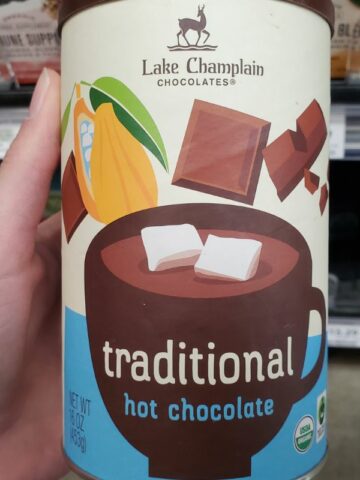
Comments
No Comments